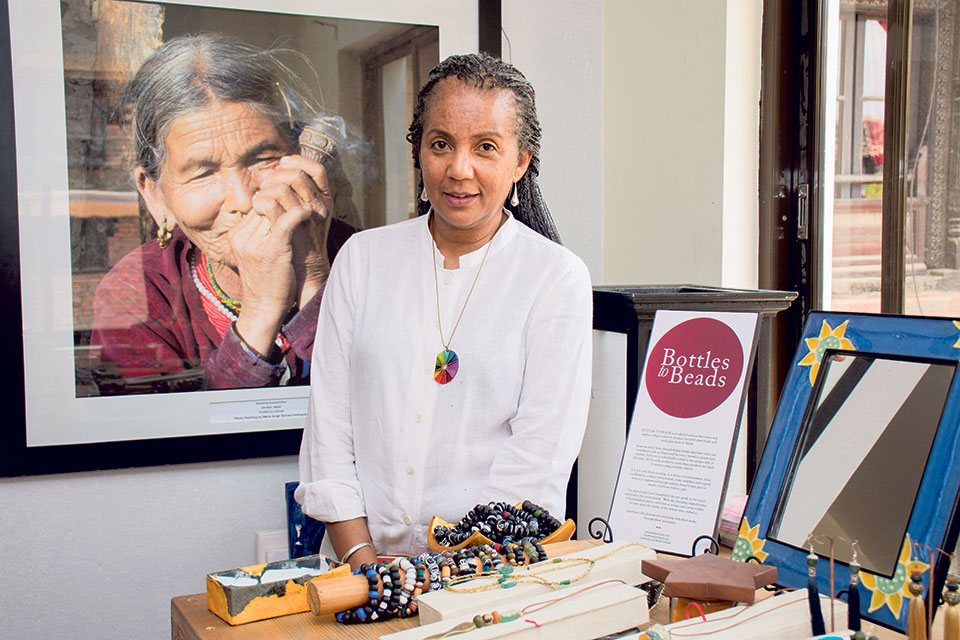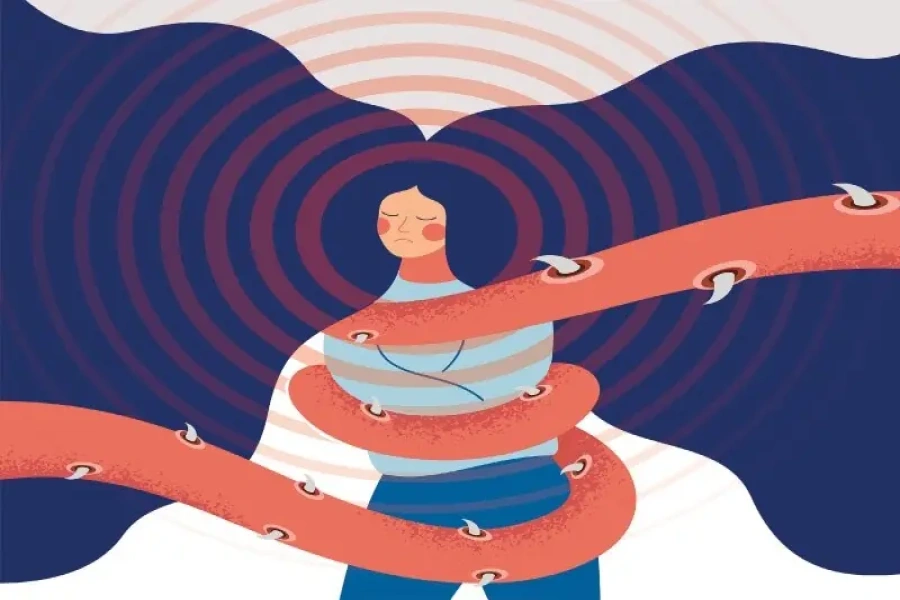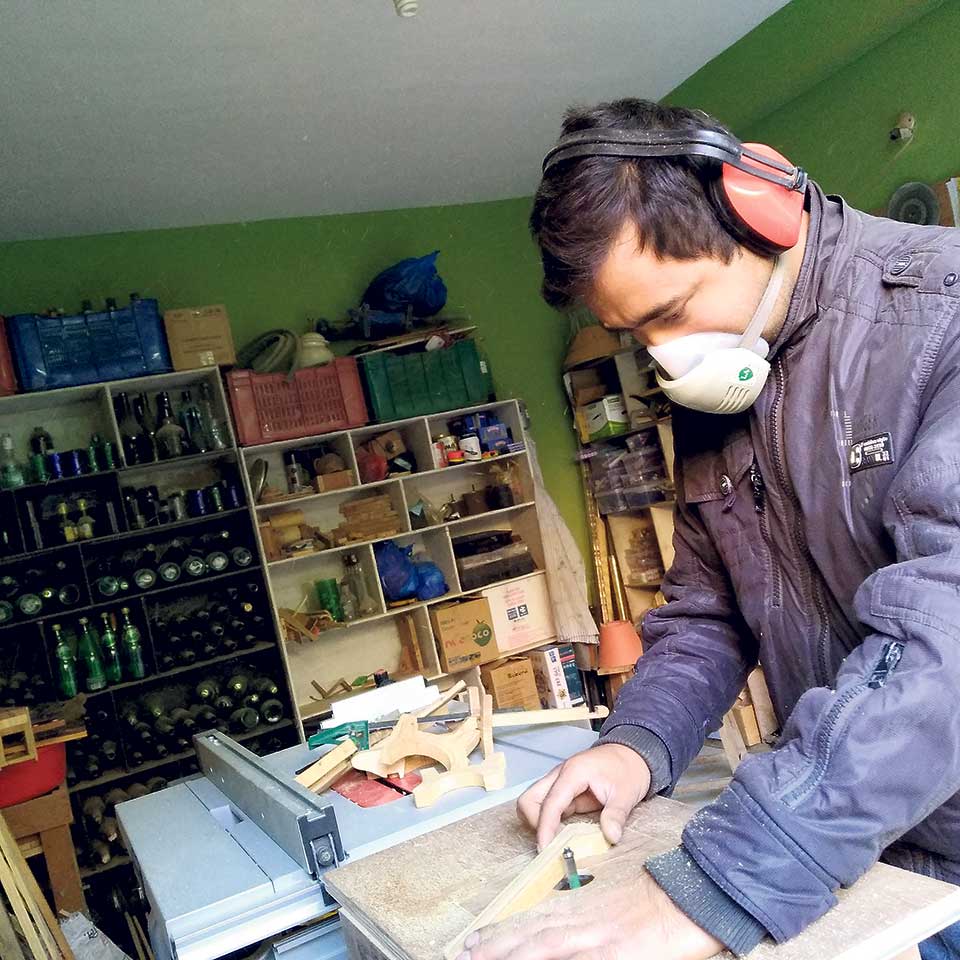Bottle to Beads is a personal venture and an ethical business initiated by Marie Ange Sylvain Holmgren. This noble venture trains and empowers rural women of Nepal to produce beads made of recycled glasses.

When Sylvain Holmgren came to Nepal in 2013 from Haiti she realized that women in Nepal were not making their own beads. According to her, every culture understands an object with two holes. They have been used for many years as currencies, in art, in garments, as jewelry and as many more things. But, to her surprise, women who were wearing beads all the time in Nepal were not making them at all.
So she thought of bringing the skill of making beads out of recycled materials here. In order to train and empower Nepali women she called a trainer from Ghana who had expertise in transforming glass bottles to beads.
Resolving Kathmandu Valley’s solid waste problems

The primary motive of Bottle to Beads is to train women who have no source of income and help them market their own products. While doing so, this project is also able to recycle discarded glass bottles that pollute cities and mountain trails.
In the recent years, beer bottles, coke bottles and other glass bottles found in the villages and cities have become a great hazard to the environment, humans, and animals alike. Bottle to Beads attempts to help untrained and unskilled women make useful jewelry out of this waste.
Yet there are several challenges that this venture faces everyday. One of the major obstacles for women in the villages, according to Sylvain Holmgren, is to find time and support from their family. Women even till today are expected to remain in the private sphere and are not encouraged to work in public. Secondly, making beads requires group work and a lot of dedication. Unfortunately, women in the villages need to work for long hours at home and they find it extremely difficult to function in groups.
But, things are slowly changing. There is a community in Dang that works together at a workshop to make beads that are not only sold locally but also exported.
“Women over the years have never been praised for the work they do. Now when locals and foreigners are buying and loving their products, they feel a sense of pride,” says Sylvain Holmgren adding that appreciation while doing these unconventional jobs makes them more independent and happy. According to her, the change that these women are feeling now after making beads is one of their biggest achievements.
Sylvain Holmgren says that beads making is also a very meditative work as it takes a long time. The friendship that forms between women when they make these beads is solid and beautiful. Also, all the tools used to make these beads are made by women with very little investment. So it is something that each and every woman can do without support from her family.
For her this journey of Bottle to Beads has been a journey of harmony and friendship. Beads, for Sylvain Holmgren, have also been tools of communication, transformation, and friendship.
According to her, there is no other object that has so much power. “When I came to Nepal, I did not speak Nepali. But after spending time with these women I realized that teaching bead making did not require any specific language. All that was needed was the language of love,” she says.
In the future she aims to enable women to open their own shops so that they can produce, market, and sell their products on their own. For her, this project is not only about recycling waste products. It is about transformation. Bottle to Beads aims to transform the polluted environment into a cleaner one, unpaid and unskilled women to paid and empowered women, broken glasses to beautiful jewelry, and trash to cash.








































